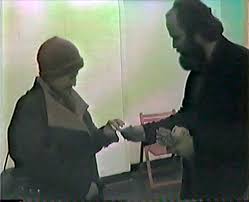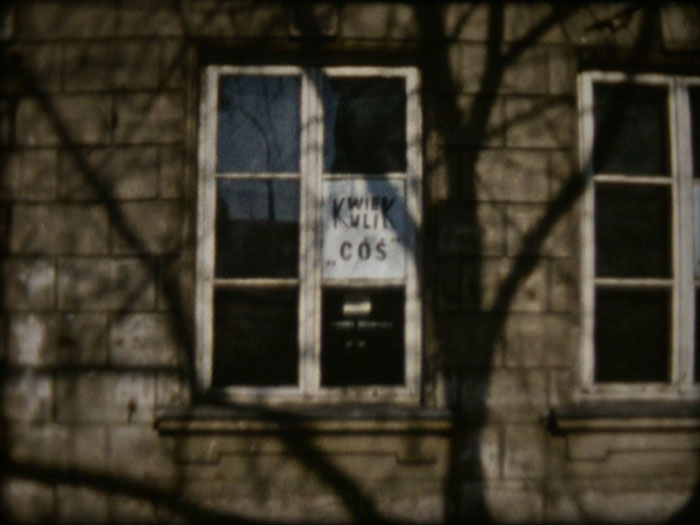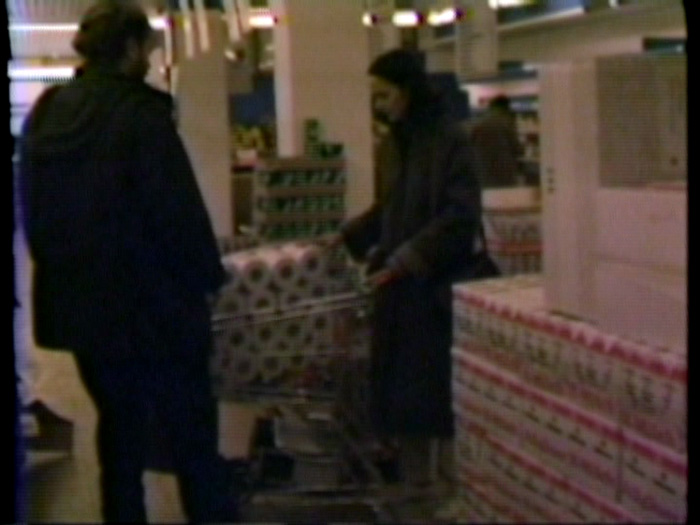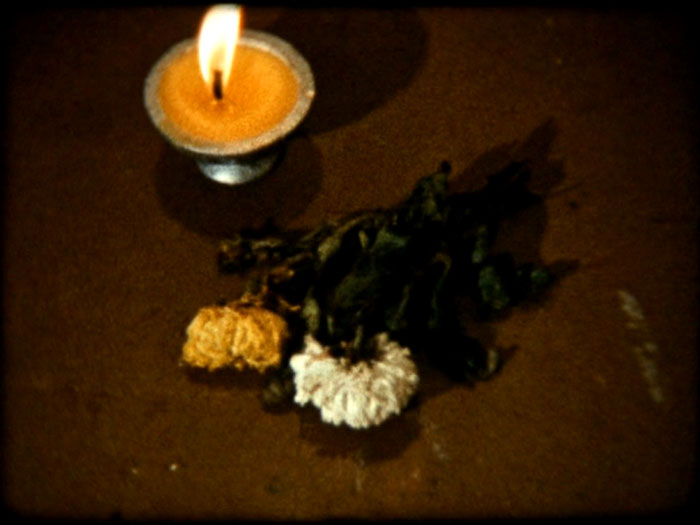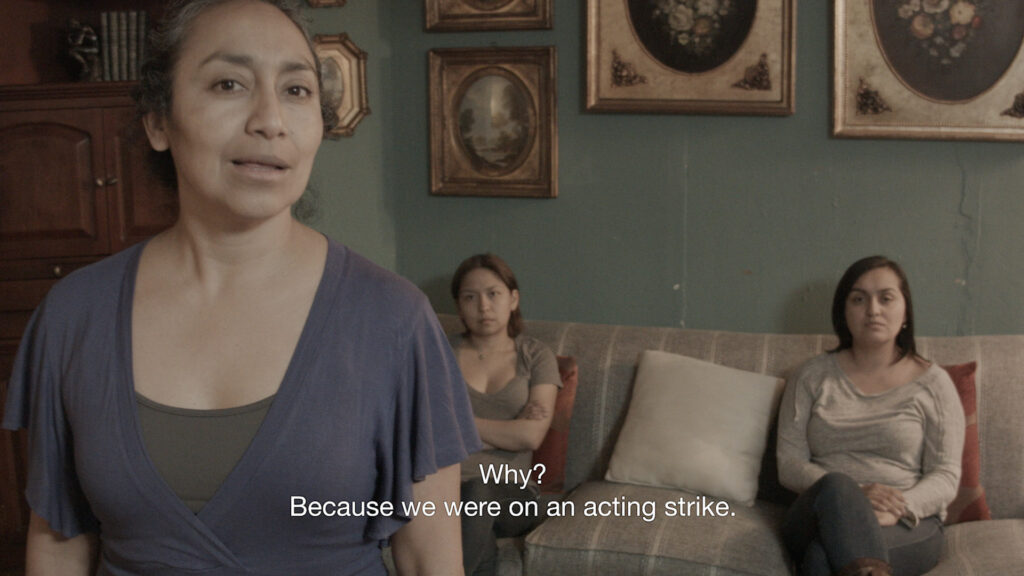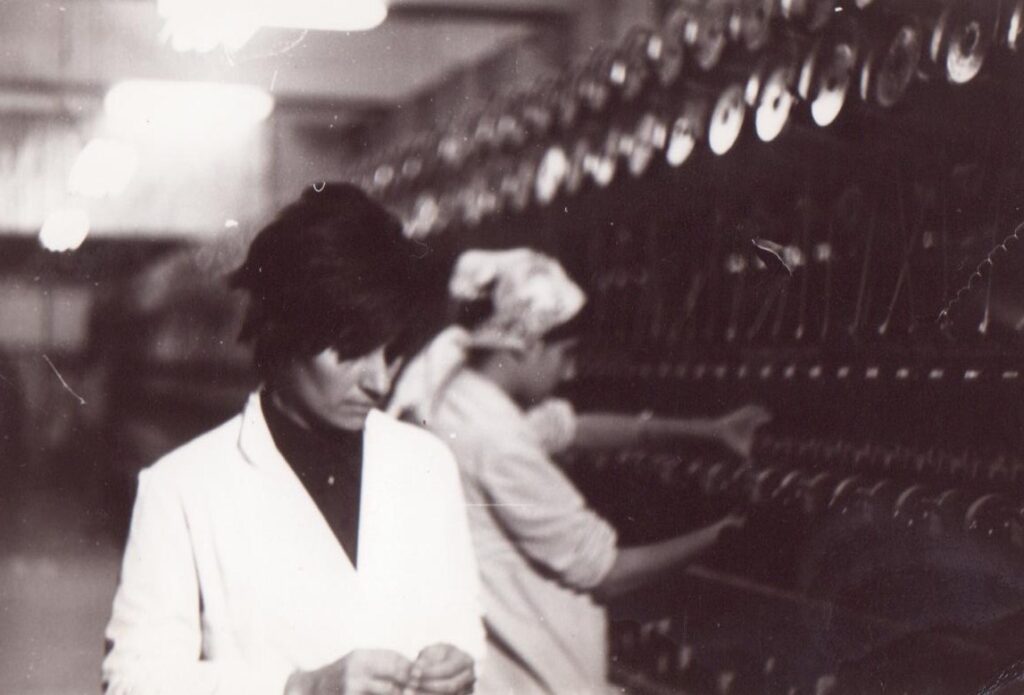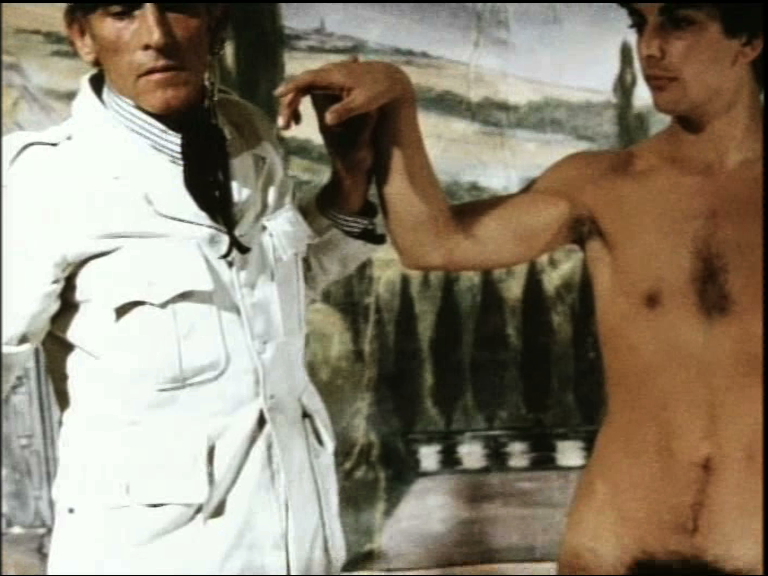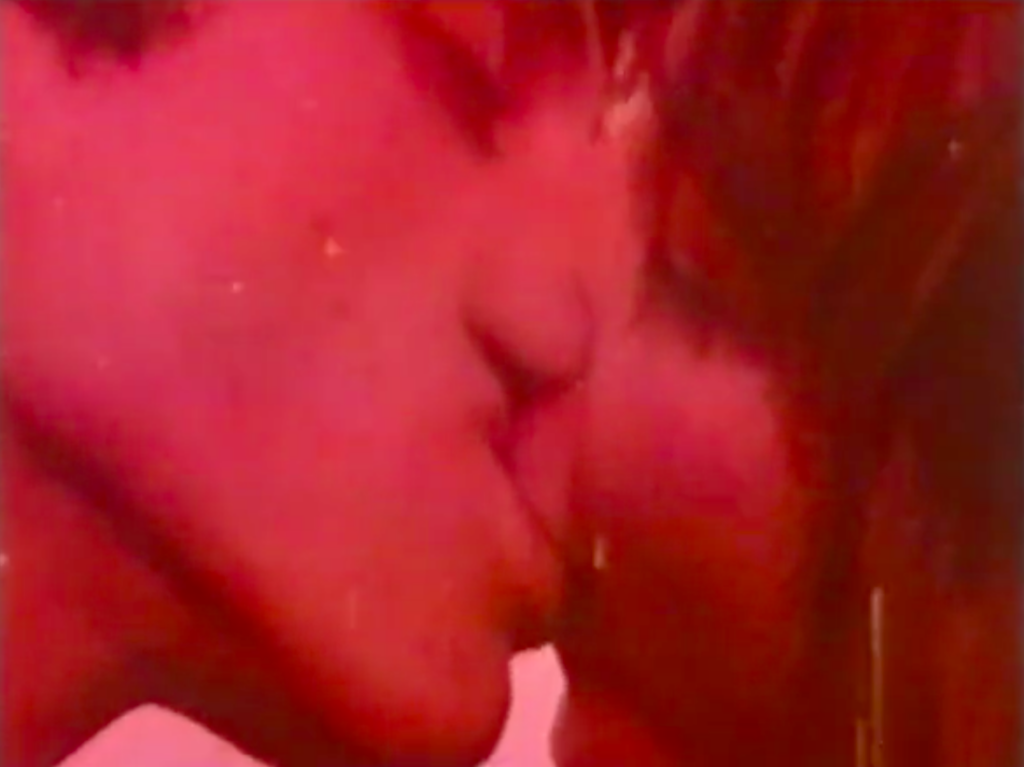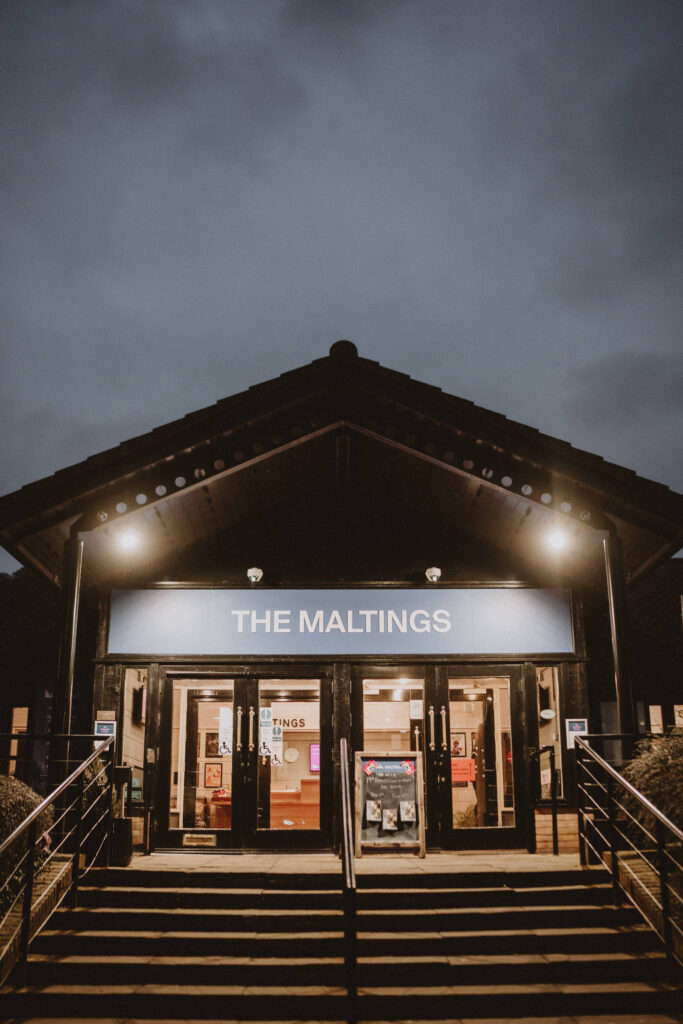
Maltings Henry Travers
Located on Eastern Lane, The Maltings is the festival’s main hub. The Henry Travers Studio at The Maltings is named after the eponymous film and stage actor, whose best known role was guardian angel Clarence Odbody in the 1946 film It’s a Wonderful Life. The Henry Travers Studio a black-box studio space which can seat up to 120.
Interleaving the archive (Group Action with KK) is a performative lecture by Holly Argent that brings together a spoken semi-fictive narrative, photographic transparents on an overhead projector, a live video-feed projection and a screening of a number of films by Polish artist duo KwieKulik (Przemyslaw Kwiek and Zofia Kulik). Also known as KK, the duo were making work in Warsaw, Poland between 1971–87. Their political and often ephemeral work attempted to expose their situation as artists working under communist rule in the People’s Republic of Poland.
This programme brings together Marwa Arsanios’ new work Amateurs, Stars and Extras or the labor of love with her earlier, much-lauded film Have You Ever Killed a Bear or Becoming Jamila.
Q&A with filmmaker Marwa Arsanios
Christian Ghazi’s incendiary, avant-garde masterpiece A Hundred Faces for a Single Day ends with the send-off, “I don’t care when or how I will die, as long as there are armed men who will continue the march, shaking the earth with their uproar so that the world won’t sleep heavily over the bodies of the laborious, miserable and oppressed men.” Through this fiction-documentary hybrid film, Ghazi forged a strong critique of bourgeois society in Beirut during Lebanon’s Golden Age (which would end in 1975 with a gruelling and protracted civil war). An essay on labour, class, social relations and resistance, Ghazi considered the film his “manifesto on cinema”, a powerful and polemical work that reaches back to the early decades of film experimentation while pioneering radical techniques in multivalent sound, disjunctive montage and an embedded perspectives on direct action.
Selected by Artist in Profile Marwa Arsanios, who will introduce the film
Christian Ghazi’s incendiary, avant-garde masterpiece A Hundred Faces for a Single Day ends with the send-off, “I don’t care when or how I will die, as long as there are armed men who will continue the march, shaking the earth with their uproar so that the world won’t sleep heavily over the bodies of the laborious, miserable and oppressed men.” Through this fiction-documentary hybrid film, Ghazi forged a strong critique of bourgeois society in Beirut during Lebanon’s Golden Age (which would end in 1975 with a gruelling and protracted civil war). An essay on labour, class, social relations and resistance, Ghazi considered the film his “manifesto on cinema”, a powerful and polemical work that reaches back to the early decades of film experimentation while pioneering radical techniques in multivalent sound, disjunctive montage and an embedded perspectives on direct action.
Selected by Artist in Profile Marwa Arsanios, who will introduce the film
Lionel Soukaz is a pivotal figure in European queer cinema: a filmmaker, collaborator with queer theorist Guy Hocquenghem and organiser of the first festivals of Cinémas Différents in France. Combining the pop cultural ironies of Jack Smith and Kenneth Anger with protest cinema, his films target the norms of heterosexual and homosexual culture alike, calling for the end of identity and the free reign of desire. Writer/curator Paul Clinton presents two works by Soukaz with an illustrated lecture.
The Meadow Mari are a Finno-Urgic ethnic group living on the left bank of the Volga River in central Russia, sometimes called ‘the last authentic pagans in Europe’. Their religion—Mari Paganism—is based on the worship of the forces of nature, and mass prayers are held in sacred groves at specific times according to the positioning of the Moon and the Sun. Mari were persecuted during the Soviet Union, but their faith has been given official status by the Russian government since the 1990s. However, some native religion believers contend that there is still a trend to Russify Mari culture and religion.


